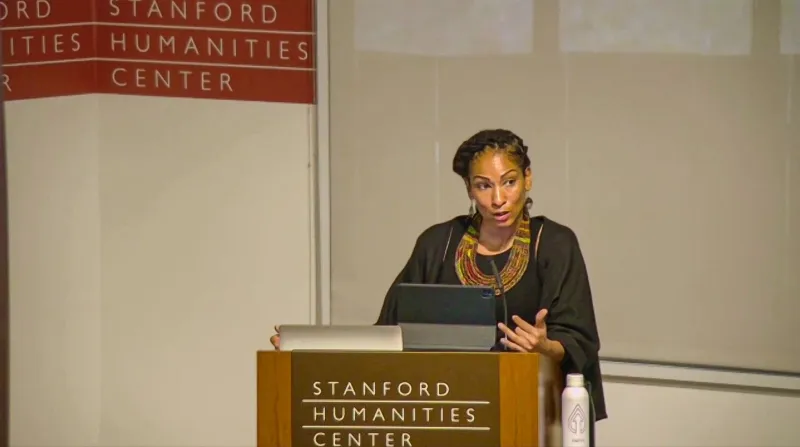Katie Kitamura, a celebrated novelist known for her incisive storytelling, recently captivated audiences with her latest work, “Audition.” This compelling novel explores themes of performance and privacy against the backdrop of midlife dilemmas and the uncanny nuances of relationships. Kitamura’s exploration often delves into the horror genre literature, revealing the fears and uncertainties lurking beneath everyday life. In a recent Katie Kitamura interview, she shared insights into how her creative process intertwines with these haunting themes, making her characters palpable and relatable. As she prepares for her upcoming talk at Harvard, Kitamura’s unique approach to narrative continues to challenge and engage readers, solidifying her reputation in contemporary fiction.
Introducing the fascinating world of Katie Kitamura, this acclaimed author brings a fresh perspective to narrative structure and character development. Her latest work, “Audition,” is a remarkable exploration of existential themes woven into the fabric of midlife fiction. Tackling notions of self-presentation and the depths of personal relationships, Kitamura uncovers the relatable horrors of domestic life. Through her storytelling, she prompts readers to reflect on the delicate balance between public persona and private existence. As she engages audiences in her discussions about performance and the eerie aspects of family dynamics, Kitamura cements her role as a significant voice in contemporary literature.
Exploring the Horror Genre in ‘Audition’
In her latest novel, ‘Audition’, Katie Kitamura delves deep into the horror genre, blending psychological tension with the intricacies of midlife experiences. The novel’s protagonist navigates a reality filled with unsettling uncertainties, capturing the essence of fear inherent in domestic spaces. Kitamura deftly draws inspiration from classic horror literature, particularly invoking the eerie qualities seen in works like ‘Rosemary’s Baby’. Here, the reader grapples with themes of motherhood intertwined with horror, showcasing the uncanny nature of relationships that can turn familiar into foreign.
As the protagonist’s story unfolds, a chilling atmosphere pervades her life in a claustrophobic New York City apartment. Kitamura not only crafts a compelling narrative but also poses critical questions about identity and perception. The uncanny feelings the protagonist experiences—whether her loved ones are who they seem—are deeply rooted in horror conventions, enabling Kitamura to explore the often-overlooked terrors embedded in ordinary life. This intersection of horror and midlife fiction culminates in a thought-provoking commentary not just on personal fear, but on collective societal anxieties as well.
Katie Kitamura’s Insights on Performance and Privacy
Katie Kitamura addresses the delicate balance of performance and authenticity in relationships. In ‘Audition’, the protagonist’s role as an actor accentuates this theme, highlighting the masks we wear daily. Kitamura believes that performance is an intrinsic part of human existence, teaching us how to relate with one another amidst shifting social dynamics. This notion resonates strongly within the context of midlife crises, where the struggle to maintain authenticity while navigating societal expectations arises prominently, making even the simplest interactions fraught with complexity.
Moreover, Kitamura articulates the significance of privacy in intimate relationships. She challenges the myth of complete transparency, asserting that maintaining boundaries is essential for healthy connections. This duality becomes increasingly poignant when the central character grapples with her identity amidst external pressures—balancing self-disclosure with the need for personal space. As readers, we’re invited to ponder: how well can we truly know one another without threatening the sanctity of our inner lives? Kitamura’s exploration of these themes serves as a grim reflection on the modern human experience, effectively intertwining performance, privacy, and the horror that often lurks beneath the surface.
The Intersection of Literature and Societal Issues
Kitamura also emphasizes the critical role of literature in addressing contemporary societal issues. In an age dominated by technology and disconnection, her work champions the power of the written word as a tool for connection and understanding. By articulating complex emotions through her narrative, she shows how fiction can mirror reality while providing a space for reflection on sociopolitical themes. This aligns perfectly with her assertion that writing serves as a vital outlet for envisioning alternate realities, especially during tumultuous times.
Additionally, this perspective becomes especially significant when considering developments in areas such as artificial intelligence and the ecological crisis. Kitamura’s belief that fiction ignites imagination and fosters discourse stands in stark contrast to the impersonal interactions fostered by technology. As she teaches writing at NYU, she instills in her students the importance of articulate storytelling, ensuring that literature remains a driving force for societal change. In light of ongoing challenges, advocating for literary pursuits, as Kitamura does, promotes resilience and creativity in finding solutions.
The Role of the Artist in Today’s World
As Katie Kitamura navigates her own journey as an artist, she reflects on the inseparable link between the artist’s visibility and societal commentary. In her discussions, she poses the question of how writers can effectively communicate to inspire change in an era overshadowed by challenges. For Kitamura, the act of writing transcends personal expression; it becomes a communal experience, fostering thoughts on the complexities of human nature and the intricacies of moral and ethical dilemmas we face.
In her role as a Guggenheim Fellow, Kitamura embodies the mission of bridging art and social awareness. She acknowledges that literature can serve as a lens through which we inspect our realities, thereby instigating important conversations about identity and morality. Artists like Kitamura are tasked with embodying the reality of our time, championing the significance of narrative as a means to navigate the intricacies of modern existence—efforts that remain crucial for maintaining cultural relevance in a rapidly changing world.
Midlife Fiction: The Uncanny Journey
Midlife fiction tends to capture a distinctive phase in life characterized by reflection and transformation. Katie Kitamura explores this theme in ‘Audition’, where her protagonist navigates tumultuous emotions and uncertain relationships. This rich narrative harvests the essence of human vulnerability, as characters confront their fears and the familiar terrain of midlife crises. The uncanny feels prominent in Kitamura’s portrayal, as individuals grapple with how well they know themselves and those closest to them.
Moreover, the uncanny aspects of aging and familial relationships imbue the narrative with layers of tension. Midlife becomes a time of reckoning; characters must confront their past while grappling with their future. In this exploration, Kitamura successfully highlights the intertwining of individual fears with societal expectations, making the narrative resonate deeply with readers. This collective experience of uncertainty echoes the overarching themes discussed in her earlier works, placing performance and privacy under a scrutinizing lens that reveals the darker shades of the human experience.
The Impact of AI on Literary Expression
The advent of AI and technological advancements poses intriguing questions about the future of literary expression. Katie Kitamura’s work takes on additional significance in this landscape, where technology often supersedes the human experience. In conversations with her students, she articulates the undeniable importance of storytelling, urging them to write with precision and care amidst the digital chaos that seeks to distract from genuine human connection.
Kitamura asserts that literature has the power to foster empathy and understanding, crucial sentiment in an increasingly divided world. As AI-generated responses become more prevalent, the challenge lies in prioritizing authenticity in storytelling. By engaging with narratives deeply rooted in human emotions, Kitamura encourages aspiring writers to resist the allure of efficiency in favor of depth and nuance—qualities that only grounded, lived experiences can provide.
Navigating Relationships through Fiction
In ‘Audition’, Kitamura presents a profound exploration of relationships and their inherent complexities. The characters navigate their inter-personal dynamics, reflecting the constant negotiations of identity and intimacy in human connections. As the protagonist faces the challenge of maintaining her sense of self amidst the expectation to perform, themes of autonomy and vulnerability emerge. Kitamura deftly illustrates how relationships serve as both a safety net and a source of fear, raising questions about the nature of trust and understanding.
The novel adeptly portrays the fragility of relationships, emphasizing the moments where performance can blur reality. Rather than merely critiquing the façade people uphold, Kitamura invites readers to appreciate how these performances shape our understanding of one another. The struggle to maintain authenticity while fulfilling societal roles makes Kitamura’s examination of relationships deeply relevant to contemporary discussions on identity and connection.
Literature as a Response to Societal Changes
Kitamura views literature as a vital response to the shifting sociopolitical landscape of our world. As she grapples with themes related to performance and identity, the socio-historical context in which her characters exist adds further resonance to her narrative. The very act of writing becomes a reflection of current events, embodying the emotional landscape shaped by significant societal changes. In this way, Kitamura not only addresses personal crises but also engages with the broader cultural and political dialogues that permeate society.
Moreover, applying this lens reinforces the role of authors as commentators on the human condition. As an emerging voice in contemporary literature, Kitamura reminds us of the responsibility and privilege of storytelling amid crisis. Her narratives stand as testaments to the resilience of the human spirit, echoing the belief that through literature, we can advocate for change and imagine a better reality for ourselves and future generations.
The Significance of the English Major in Current Times
Katie Kitamura’s reflections on her time as an English major highlight the enduring relevance of literature in today’s conversation. She emphasizes that pursuing studies in English enhances critical thinking and fosters a rich understanding of the complexities of human nature. In a world where ideas can quickly become divided, those who study literature learn to navigate and articulate nuanced perspectives, thereby fostering deeper connections within society.
In her workshops, Kitamura inspires students, encouraging them to see the value of literary expression as a means to challenge prevailing norms and articulate shared human experiences. By promoting English studies, she advocates for a broader comprehension of cultural narratives, underscoring literature’s ability to connect disparate sets of experiences. Kitamura’s insights serve as a timely reminder that despite the rapid technological advancements, the written word remains a powerful tool for shaping and transforming society.
Frequently Asked Questions
What inspired Katie Kitamura to write her novel ‘Audition’?
Katie Kitamura was inspired to write ‘Audition’ by her interest in the horror genre, particularly influenced by classic works like ‘Rosemary’s Baby’. The novel explores themes of performance and privacy, capturing the uncanny aspects of midlife through the lenses of family dynamics and personal identity.
How does ‘Audition’ reflect themes of performance and privacy in literature?
In ‘Audition’, Katie Kitamura delves into the complexities of performance in everyday life, highlighting how people adapt and change based on their roles. The central character’s journey reveals the thin lines between public personas and private selves, raising questions about authenticity and the essence of relationships.
Does ‘Audition’ fit into the horror genre of literature according to Katie Kitamura?
Yes, Katie Kitamura considers ‘Audition’ to engage with horror as a genre. The novel portrays unsettling moments that challenge perceptions of reality, akin to classic horror narratives where familiar elements become bizarre, thus creating a tense atmosphere reminiscent of psychological horror.
How does Katie Kitamura address the theme of midlife in her new novel ‘Audition’?
In ‘Audition’, Katie Kitamura explores midlife as a period of uncertainty and potential crises. The central characters grapple with their identities, relationships, and the secrets they harbor, illustrating how midlife can be both a time of success and a prelude to possible downfall.
What are some common themes found in Katie Kitamura’s novels?
Common themes in Katie Kitamura’s novels include the intricacies of human relationships, the nature of identity, and the interplay between performance and reality. Her works often explore how characters navigate privacy and presence in their lives, particularly within familial and intimate contexts.
How does Katie Kitamura’s teaching experience inform her writing?
Katie Kitamura’s role as a writing instructor at New York University enriches her writing by exposing her to emerging voices and perspectives in literature. This engagement helps her foster a deeper understanding of narrative challenges and the power of storytelling, which in turn influences the themes and styles she employs in her novels.
What significance does Katie Kitamura attribute to fiction in today’s society?
Katie Kitamura believes that fiction plays a crucial role in society, especially in challenging times. She asserts that literature provides a means to imagine alternative realities and reflects on the sociopolitical climate, making the act of writing and reading fiction vital for connection and understanding in an increasingly divided world.
Can readers expect a similar style in Katie Kitamura’s previous works like ‘Intimacies’?
Readers can expect a similar intricate style and thematic depth in Katie Kitamura’s ‘Audition’ as seen in her previous work, ‘Intimacies’. Both novels feature tight narratives that explore complex human emotions and relationships, masterfully revealing the nuances of contemporary life.
| Key Point | Details |
|---|---|
| Katie Kitamura’s latest work | The novel ‘Audition’ explores themes of horror, performance, and privacy through the lens of a middle-aged character. |
| Creative inspirations | Kitamura cites ‘Rosemary’s Baby’ as a significant influence and aims to explore uncanny moments in familiar relationships. |
| Pandemic reflections | Although not explicitly a pandemic novel, ‘Audition’ reflects elements of confinement and tension typical of the pandemic experience. |
| Themes of performance | Kitamura believes that performance is a fundamental aspect of human interaction, and strives to illuminate the breakdown of these roles. |
| The role of fiction | Kitamura advocates for the importance of fiction in understanding reality and inspiring change amidst sociopolitical challenges. |
| Significance of literature | As an English major herself, Kitamura emphasizes that literature fosters connection and understanding in difficult times. |
Summary
Katie Kitamura, a renowned novelist, delves deep into the intricacies of human relationships and societal challenges in her works. Through her latest novel ‘Audition’, Kitamura not only reflects on personal and psychological tensions but also highlights the vital role of fiction in navigating our understanding of reality. Her perspective underscores the importance of art and literature as vessels for connection and advocacy, particularly during tumultuous times.



